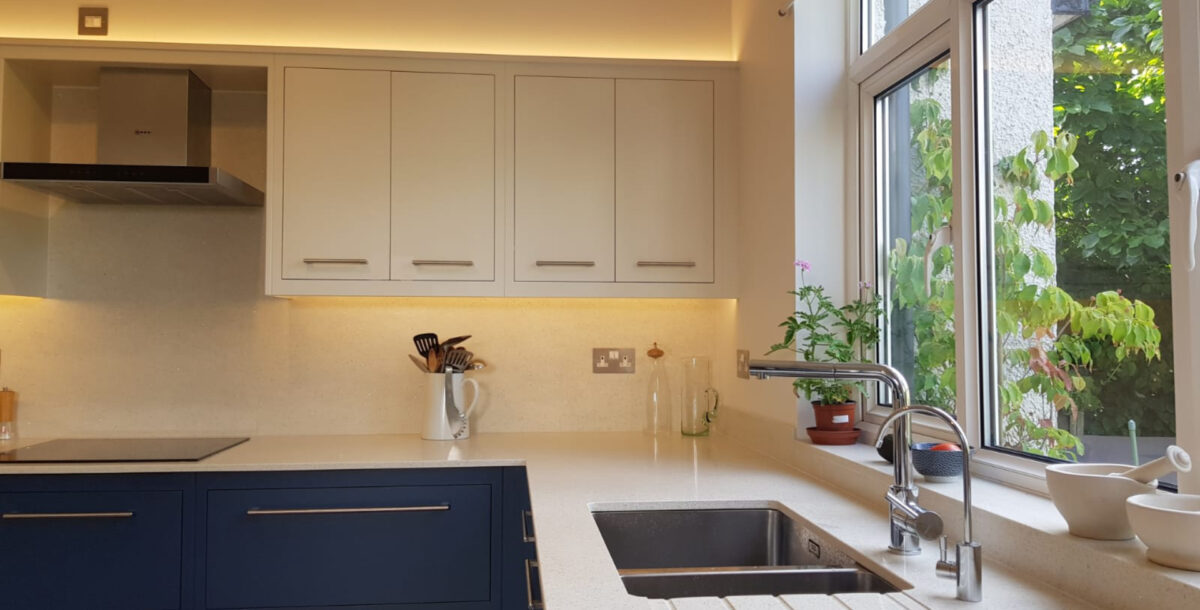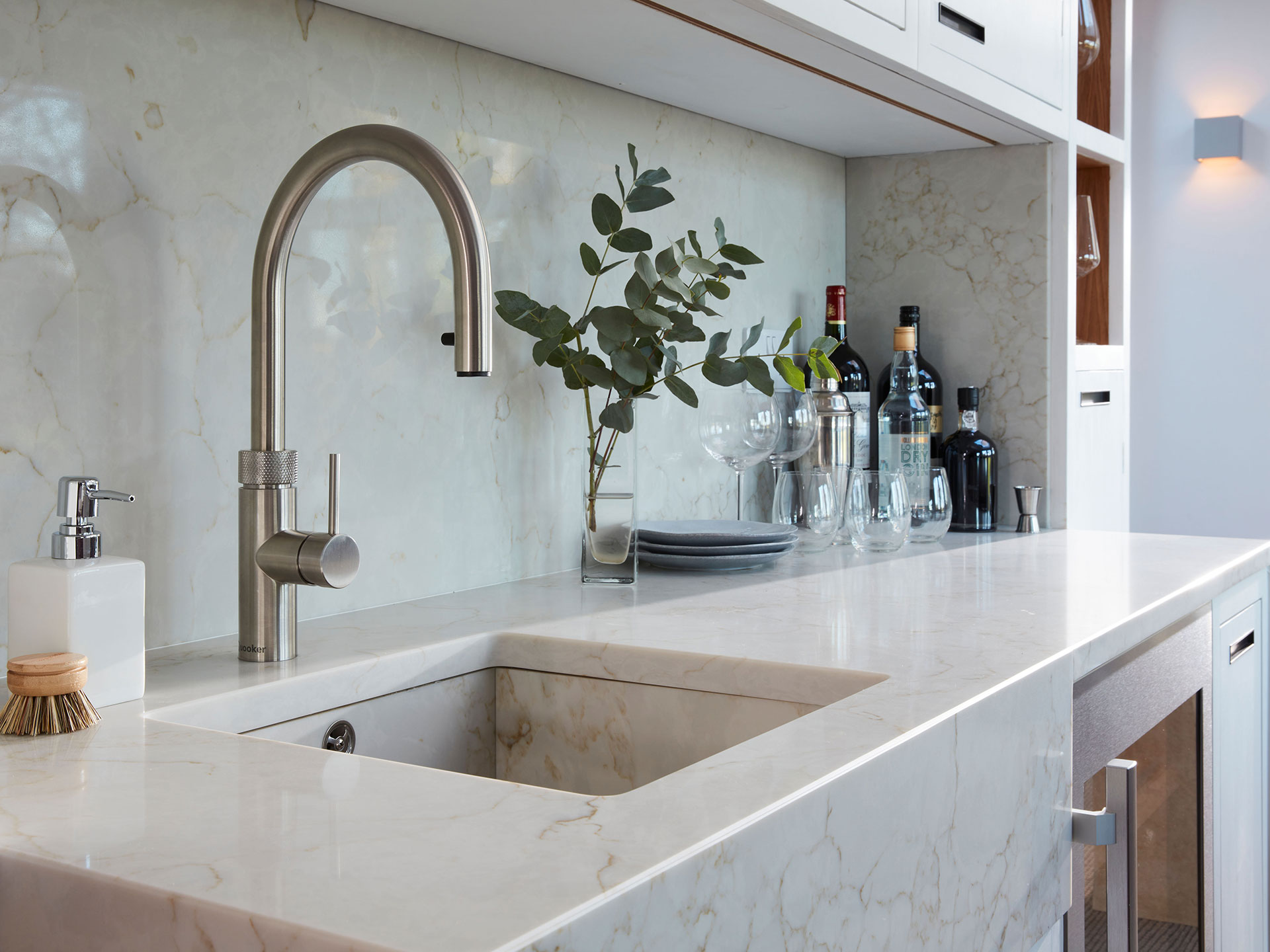
Image credit: Gemini Worktops
Best kitchen worktops 2024 – find the right material for your kitchen
A kitchen worktop has to do a lot of work. Not only do they define how your kitchen looks, often being the first thing that people notice when they walk in, but they also need to be practical and hardwearing, able to cope with all the demands you’ll place on them. To help you find the best kitchen worktops for your needs, we’ve run through the main materials to help you make a decision.
Wooden worktops
Wooden worktops are a classic, working well in traditional, contemporary and rustic-style kitchens alike. Choose from darker shades like walnut or lighter oak finishes to suit your style.
While you may associate wooden worktops with a butchers-block style finish, plywood is a sustainable and affordable option. You can even get worktops made out of reclaimed wood if you want a more eco-friendly option.
However, timber tops are prone to water and heat damage, so they need to be oiled regularly. To prevent damage, wooden countertops are not usually suitable for under-mounted sinks.
One advantage of wooden worktops is that, if marked, they can be sanded back and re-oiled. Wood countertops can usually be cut and fitted onsite, making them a cheaper option to install than stone products.
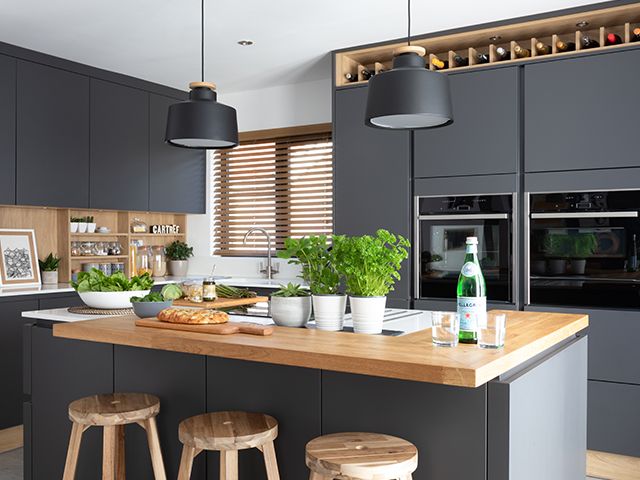
Quartz worktops
Quartz countertops are made from hardwearing natural quartz, mixed with resin. As an engineered composite worktop, it comes in a wide range of finishes, and you can easily find a style that matches your kitchen. Natural quartz is non-porous, which makes the surface highly stain-resistant; it’s also very hardwearing, although the resin component can be damaged if exposed to high heat.
Overall, the combination of looks and its easy-care nature make quartz one of the most flexible kitchen worktop surfaces.
Quartz countertops need to be cut to size offsite, with professionals working from a template.
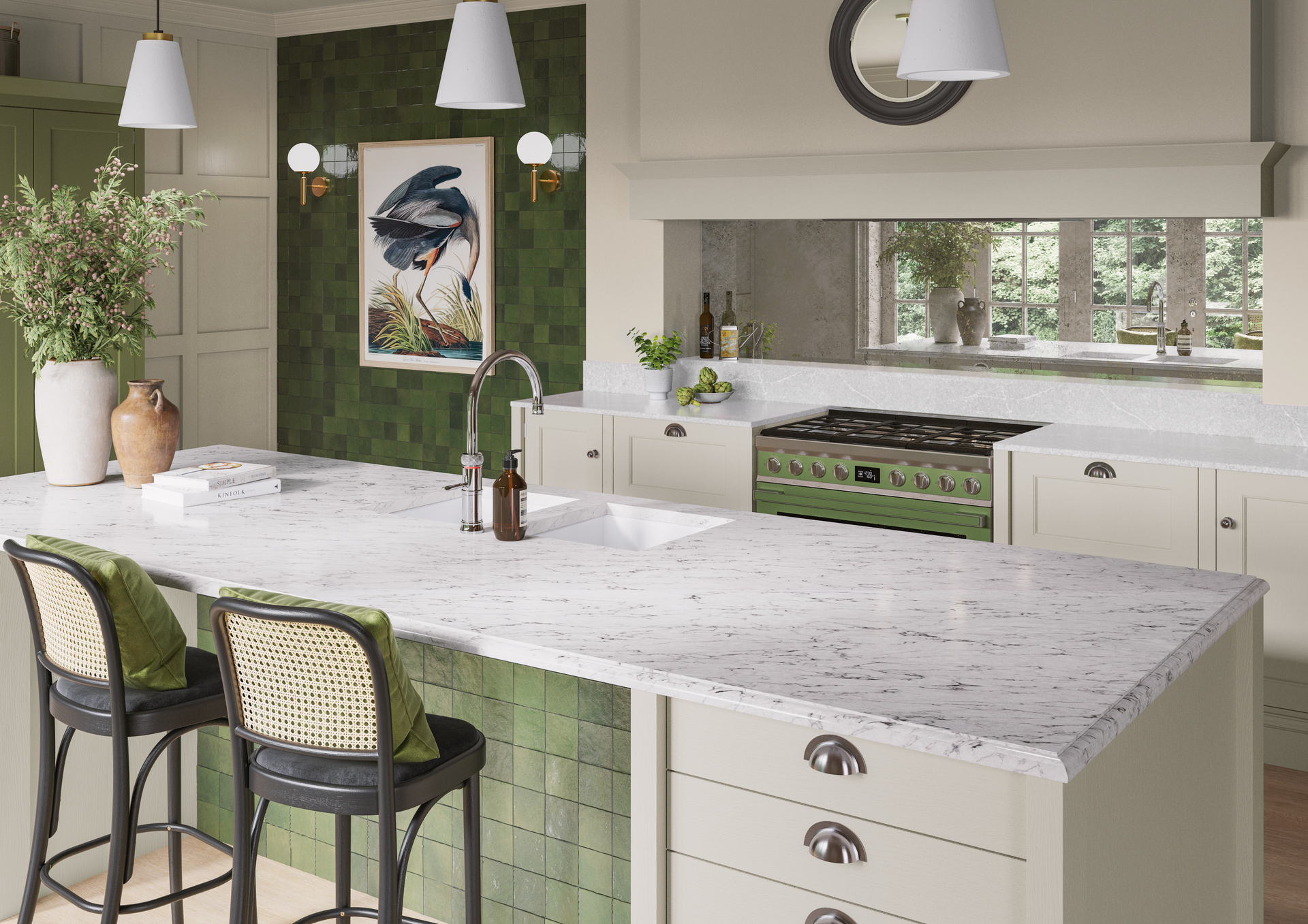
Granite worktops
Granite is a natural stone that’s extremely durable and resistant to heat and scratches. It does need to be sealed yearly to protect against water and stains. Comparing granite to quartz, the natural option needs a little more work every year.
Every piece of granite is unique and comes in a variety of colours and styles, ensuring there is a choice to fit every kitchen design. It’s worth bearing in mind that granite is probably the most expensive worktop option, but it definitely stands the test of time.
Granite worktops will need to be templated and fitted by a professional, making them more expensive to fit than some other counter options.
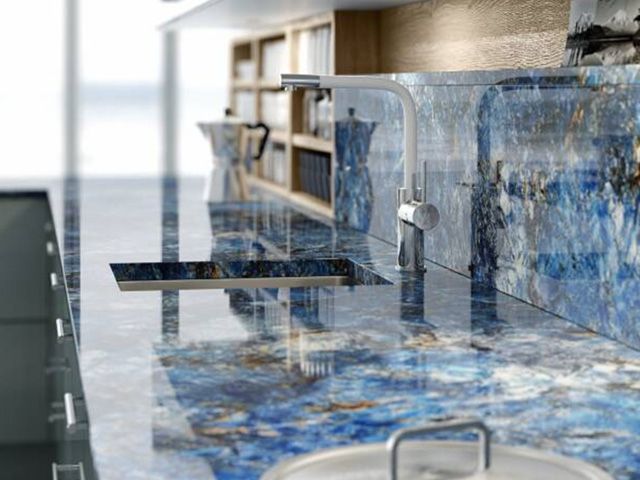
Laminate worktops
Made from a thick, chipboard base wrapped in a layer of resin laminate, these worktops are excellent value and come in a huge variety of designs and colours. Many of the finishes are designed to look like other products, such as natural wood or quartz.
Laminate worktops are easy to clean, but can be scratched or chipped fairly easily, and are not heat-resistant. There are fillers designed to cover minor scratches and chips, but bigger areas of damage are harder to deal with.
Those on a tight budget will find laminate a good choice, and this worktop type can work well in low-traffic areas, such as utility rooms or boot rooms. Laminate countertops are cut to size and are fitted on site, making them cheap to install.
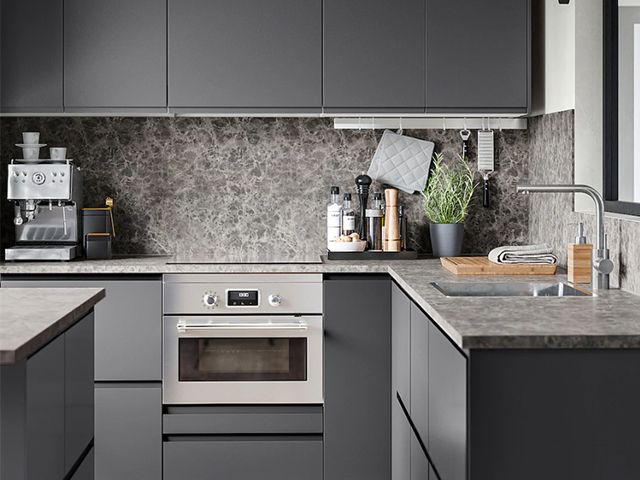
Terrazzo worktops
Another composite material, similar to quartz, terrazzo is an engineered product that comprises of chips of marble, quartz, granite and other natural stone materials, bound together using cement or resin.
Stylish and bolder than quartz, terrazzo worktops can inject a bit of character into a kitchen. These countertops are easy to care for and stain-resistant, but may require periodic sealing (timing dependant on the materials used) to keep them at their best.
Terrazo worktops have to be cut offsite to a template and professionally installed.
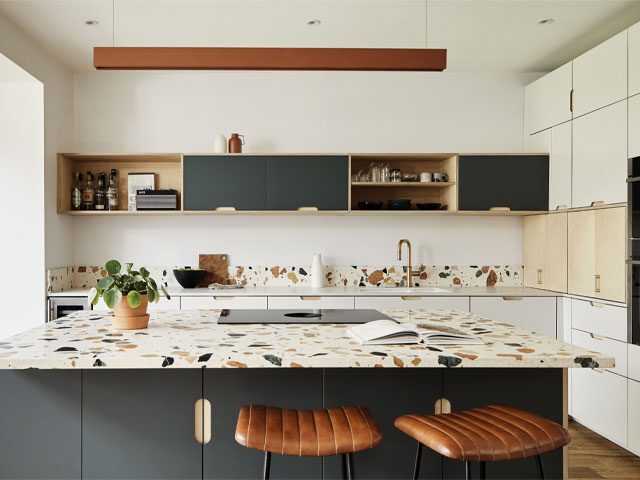
Mixed materials
Get the best of both worlds with a stone-and-wood combo. Stone and composites can be pricey, so introducing timber can help cut costs, plus it adds warmth and texture. Wood does need more upkeep, so is best reserved for light-use areas like breakfast bars.
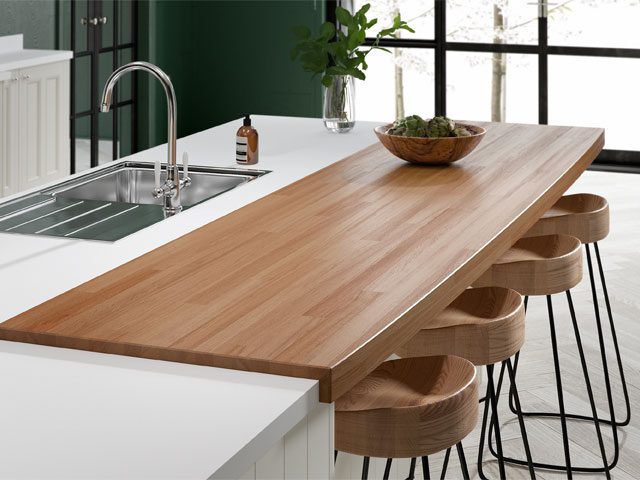
Recycled glass
Recycled glass worktops are a newer type of countertop, and are eco-friendly. Products such as Diamik Glass’ Ecorok uses glass that is crushed down and then set in resin to create a hardwearing surface. Due to the mixtures of glass used, there’s a huge range of finishes available.
Glass surfaces are non-soluble, so easy to clean, and are heat- and scratch-resistant. These products have to be cut or manufactured to a template, so require professional installation.
